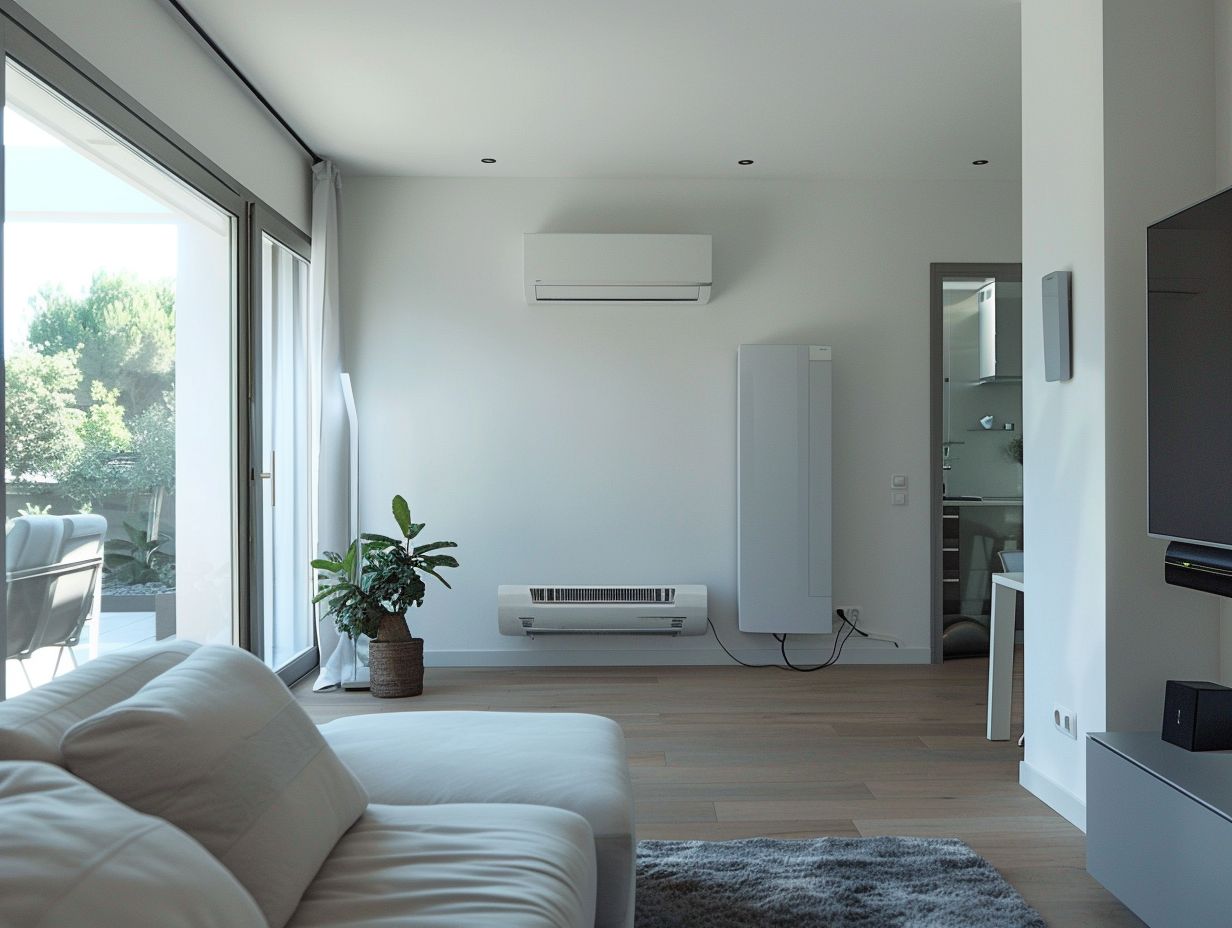Are you interested in electric heating and how it could benefit your entire household? This article will delve into the advantages and disadvantages of using electric heating systems, as well as the key factors you should consider before transitioning to this type of heating.
We will explore the various types of electric heating systems on the market, comparing their efficiency levels and associated costs to help you make an informed decision.
Additionally, we will discuss the installation and maintenance requirements of electric heating systems, and we will also touch upon alternative heating options available for your entire house.
Stay tuned to gain a deeper understanding of the benefits and drawbacks of electric heating systems.
Key Takeaways:

- Electric heating is a viable option for heating a whole house, offering advantages such as energy efficiency and easy installation.
- Before choosing electric heating, consider factors like energy costs and the type of system that best fits your needs and budget.
- While there are alternative heating options available, such as gas or oil, electric heating can be a reliable and cost-effective solution for heating a whole house.
What is Electric Heating and How Does it Work?
Electric heating is a modern method of heating that utilises electricity to generate heat for your residential or commercial spaces. This method operates by converting electrical energy into heat energy through electric heaters or systems, providing you with a reliable source of warmth.
Renowned for its efficiency, electric heating boasts the conversion of nearly 100% of the electricity consumed into heat, rendering it a cost-effective and environmentally friendly heating option.
Recent advancements in electric heating technology have given rise to smart thermostats and programmable systems, enabling users to remotely control heating schedules.
Whether it’s radiant floor heating or electric baseboard heaters, electric heating finds various applications in modern heating systems, all geared towards delivering comfortable and consistent warmth to your space.
Pros and Cons of Electric Heating for Whole House
When you are considering electric heating for a whole house, it is essential to evaluate the advantages and disadvantages to reach a well-informed decision. Electric heating offers convenient control through modern systems like storage heaters and state-of-the-art controls, ensuring optimal energy usage.
Advantages and Disadvantages
Electric heating offers various advantages, such as precise temperature controls, compatibility with off-peak electricity tariffs like Economy 7, and a reduced carbon footprint due to lower CO2 emissions. However, it also comes with potential drawbacks, such as higher operating costs compared to alternative heating options.
One of the primary advantages of electric heating systems is their efficiency in converting electricity into heat, resulting in minimal energy wastage.
This efficiency can lead to long-term cost savings as users have the opportunity to optimise their energy consumption. Additionally, electric heating systems typically require minimal maintenance, reducing overall upkeep expenses.
Conversely, a limitation of electric heating is its dependence on the electricity grid. This reliance makes electric heating vulnerable to power outages that have the potential to disrupt heating functionality during critical periods.
Factors to Consider Before Choosing Electric Heating

Before opting for electric heating, you should carefully consider various factors. These include energy efficiency, control options, the type of electric heaters, and the impact on your property’s carbon footprint.
Energy Efficiency and Cost
In the decision-making process for electric heating, you must consider pivotal factors such as energy efficiency and cost. It is essential to monitor electricity consumption through the meter, select high-efficiency heaters, and align with Net Zero targets.
By closely monitoring electricity usage through the meter, you can gain valuable insights into your energy consumption patterns. This information allows you to make informed decisions that optimise efficiency. When selecting heaters, prioritize high-efficiency options to not only reduce operational costs but also minimise environmental impact.
Aligning your electric heating systems with sustainability goals, such as Net Zero targets, contributes to a greener future. It also reinforces your commitment to energy conservation and eco-friendly practices.
Alternative Heating Options for Whole House
When considering alternative heating options for your entire property, you can gain valuable insights into diversified solutions that extend beyond electric heating.
Exploring choices such as air-source heat pumps, integrating renewable energy sources, installing smart thermostats, and consulting with Gas Safety engineers can provide sustainable and efficient alternatives.
Exploring Other Heating Methods
In terms of heating solutions, you should look beyond just electric heating to find comprehensive options for your property. Exploring alternatives such as gas heating under the supervision of a Gas Safety engineer, tracking electricity consumption using meters, and gauging carbon footprints through Energy Performance Certificates are essential steps to consider.
Delving into the electro-mechanical aspects of heating systems can lead you to more efficient and cost-effective solutions. This involves assessing components like thermostats, control systems, and mechanical heat distribution mechanisms.
By grasping the intricacies of these electro-mechanical systems, property owners can fine-tune their heating setups to achieve the desired comfort levels while reducing energy wastage.
Performing thorough energy efficiency assessments can help you pinpoint areas needing improvement and then implement measures to enhance the overall heating performance of your property.
Frequently Asked Questions

Can Electric Heating Be Used for Whole House?
Yes, electric heating can be used for whole house heating.
What is electric heating?
Electric heating is a heating system that uses electricity to generate heat for the home.
How does electric heating work?
Electric heating works by converting electricity into heat using heating elements, which are then distributed throughout the house via a network of wires or a central heating unit.
What types of electric heating systems are available for whole house use?
There are several types of electric heating systems available for whole house use, including electric furnaces, baseboard heaters, and heat pumps.
Is electric heating energy efficient?
Yes, electric heating can be energy efficient, especially when paired with a programmable thermostat and used in conjunction with other energy-saving practices, such as proper insulation and sealing of drafts.
Are there any drawbacks to using electric heating for whole house?
One potential drawback of electric heating is the higher cost of electricity compared to other fuel sources, such as natural gas. However, this cost can be offset by the energy efficiency of the system and potential savings on maintenance and repair costs.

